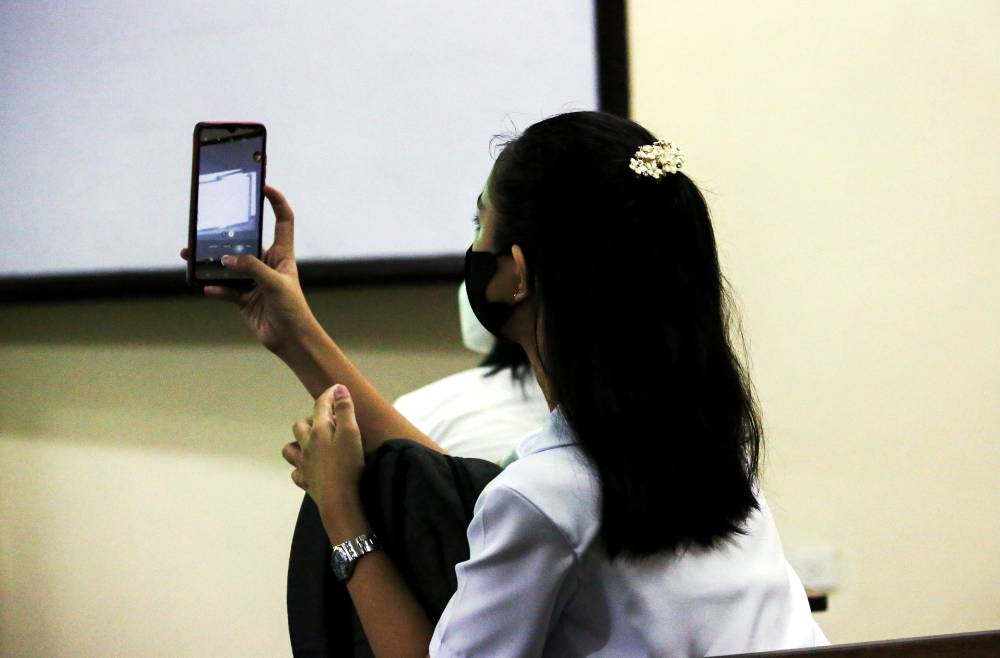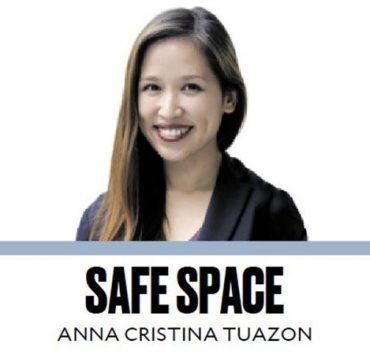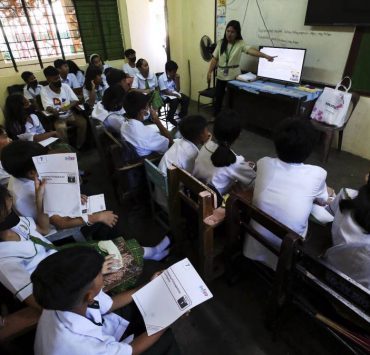Mother tongue removal: A step backward

The Philippines is a country that is best known as a melting pot of cultures and traditions, and with such diversity from both east and west, it is not surprising that it has at least 184 languages spoken in the country.
As a multilingual country, it stands to benefit the most from the Mother Tongue-based Multilingual Education (MTB-MLE) program introduced when the K-12 program was established, as children learn best when taught in a language they fully understand.
It is therefore surprising that our legislators are taking a step backward in their push for quality education with the approval on final reading of Senate Bill No. 2457, which seeks to discontinue the use of mother tongue as a medium of instruction from Kinder to Grade 3. The bill also seeks to revert the medium of instruction to Filipino and English while the use of regional languages is optional in monolingual classes and only as an auxiliary medium of instruction for the rest.
At the same time, the requirements to use MTB-MLE in the proposed bill are highly restrictive. They need official language materials published by the Komisyon sa Wikang Filipino, which are available in even fewer languages (14) than those prescribed by the Department of Education (18, excluding Tagalog). Of which, only five are in common (Cebuano, Hiligaynon, Waray, Ilokano, Kapampangan). Additionally, a formally trained teacher who is also a native speaker of the mother tongue is required. While this makes sense in theory, the reality is that no teacher training programs offer mother tongue-based instruction for teacher education students.
Discontinuing its use will create barriers to comprehension and learning. Imagine a first grader who has spoken their local language their entire life and upon entering school, all instructions are delivered in a different language. The child’s motivation to learn may be lost when he or she is unable to comprehend what is being taught.
Many policies and initiatives in this country appear promising on paper but often fail to fulfill their promises due to poor implementation. For MTB-MLE, are the efforts made really enough to implement the program as intended?
While new policies are expected to face struggles, the issues surrounding the mother tongue program started with insufficient language mapping and spilled over to lack of materials, inadequate teacher training, and mismanagement, among others.
Language mapping was not conducted properly in the beginning—without consideration of the nuances and varieties of languages in each city and municipality—leading to the assignment of inappropriate languages per school.
For years, teachers struggled to keep up due to having little to no materials and receiving no training. In Tagalog-speaking cities and provinces, it also became redundant to the Filipino subject.
Despite the implementation challenges of MTB-MLE, the program has shown positive outcomes. According to the 2018 Early Language, Literacy, and Numeracy Program Assessment, Kinder to Grade 3 pupils using the same language at home and in school performed better academically, as did teachers instructing in pupils’ preferred language. Additionally, the Philippines saw improvements in the 2022 Programme for International Student Assessment results, where the global average in math and reading declined. Filipino students who spoke a language other than English outperformed their English-speaking peers by at least 14 points and improved by three to eight points in the 2022 exam.
So what changed? Unlike their 2018 counterparts, the 2022 test takers had mother tongue as medium of instruction during their early grades. While the increase is minimal, the program contributed to its gains. Strengthening the program, instead of removing it, could yield even better results.
The failure of the MTB-MLE shows that implementation missteps can kill even the best programs, regardless of good intentions. Decisions for context-specific communities were made centrally, and it is evident that this blanket approach cannot encompass all the needs of learners across the country, emphasizing the need to devolve certain aspects of education to the local stakeholders.
As a country with multiple languages and diverse backgrounds, let those who speak Filipino learn in Filipino, those who speak English learn in English—but let us not suppress others by imposing that they learn only using both at such a young age.
So let the teachers teach, and allow communities to determine which language best suits their children.
Our government should truly take to heart that each community has unique needs that require decisions from those who understand not only their language but also their struggles and aspirations.
Diane Fajardo-Valencia is the deputy executive director for policy, advocacy, and communication of Philippine Business for Education.
Business Matters is a project of the Makati Business Club (makatibusinessclub@mbc.com.ph).





















